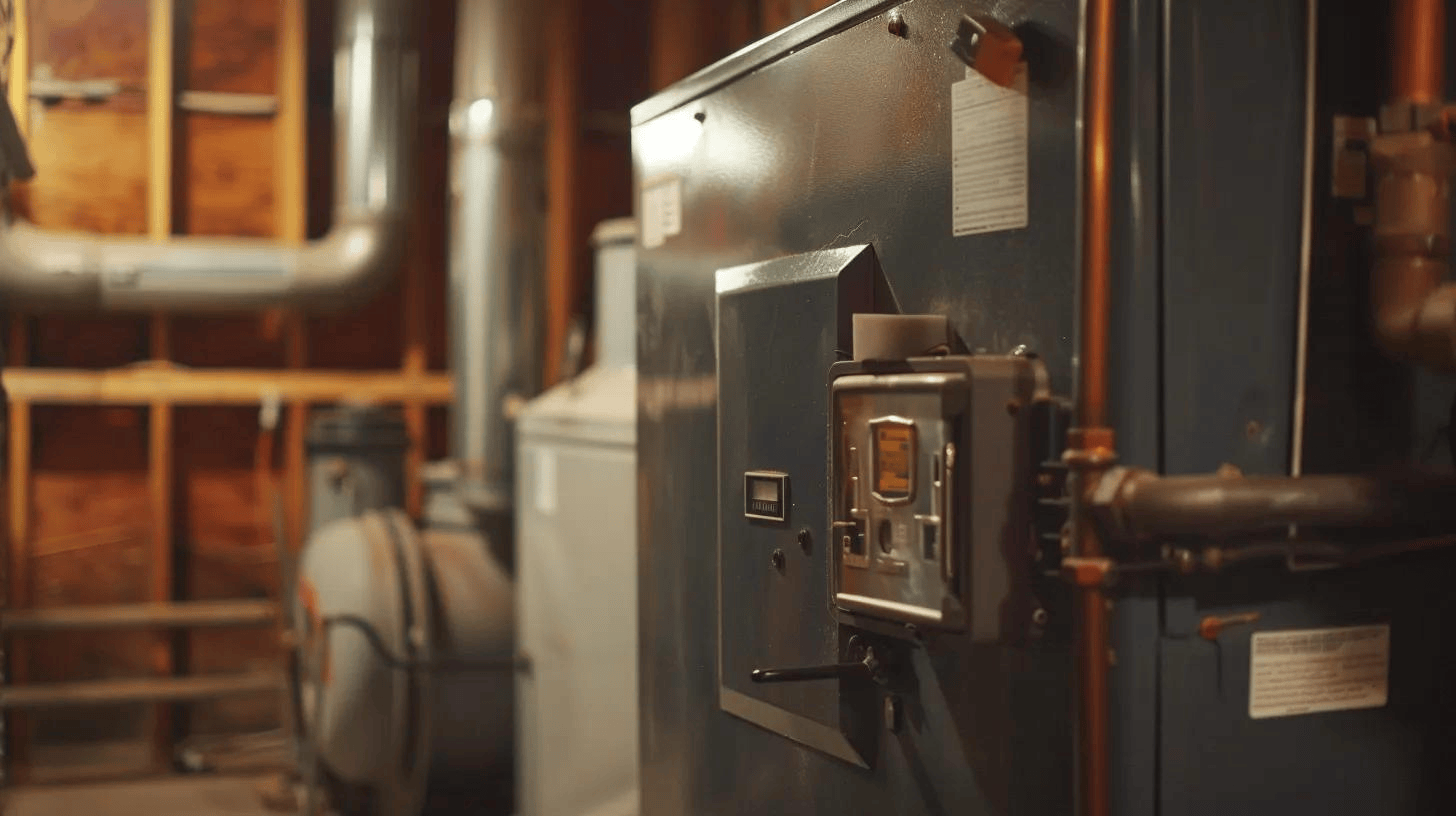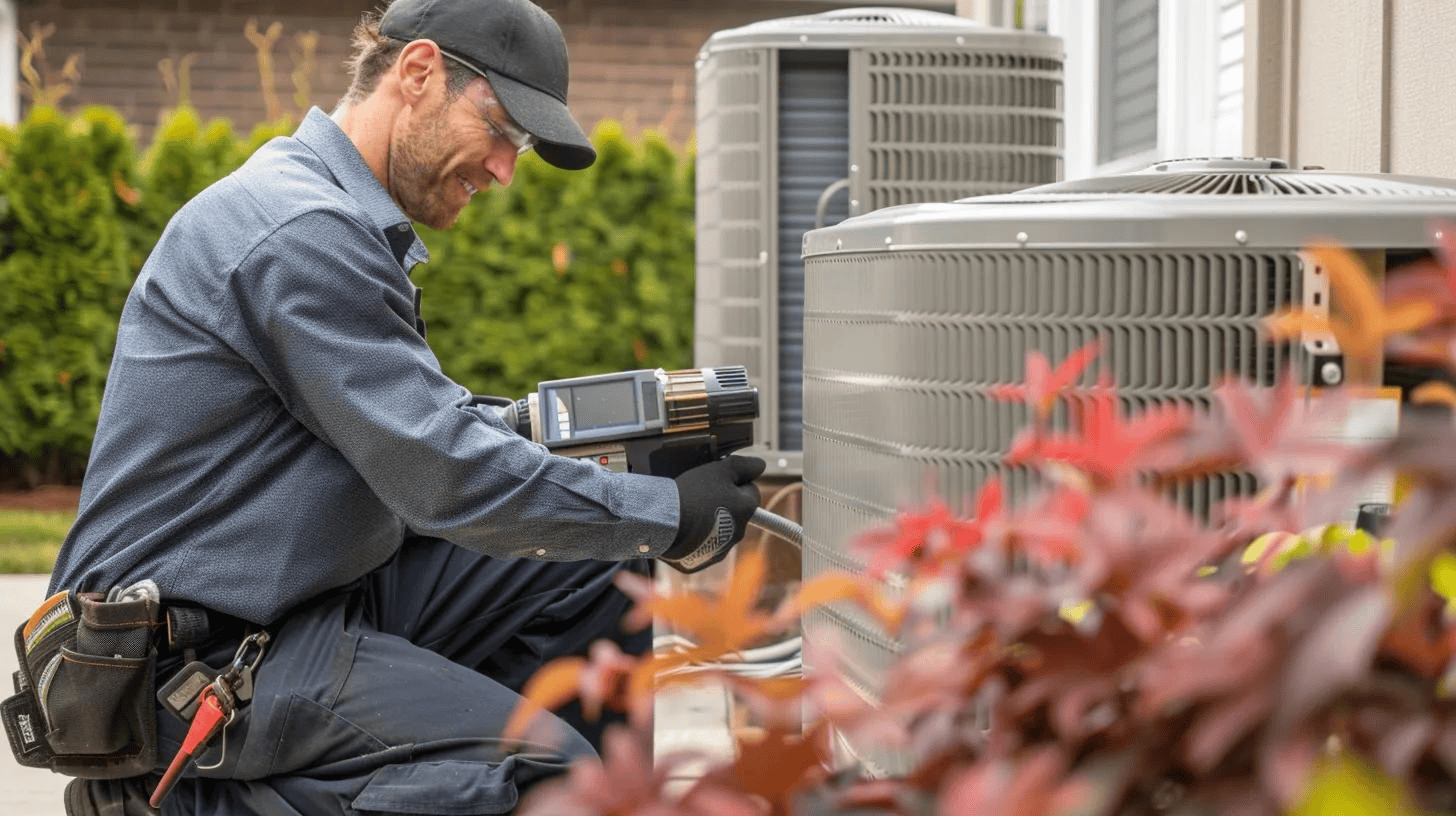During a Roanoke summer, your AC works hard to keep your home comfortable. But when you notice a puddle of water near your indoor unit, it can quickly become a frustrating problem. Water leaks around your AC are not just inconvenient — they can lead to property damage, unpleasant odors, and lower system performance. If ignored, what starts as a minor drip can turn into a bigger issue affecting your walls, flooring, or even your ceiling.
Residents throughout Roanoke often deal with AC water leaks right at the peak of summer when staying cool matters most. Understanding what causes these leaks and how you can respond will help keep your home dry and your AC system running the way it should. Solving water buildup early can prevent unnecessary repairs and discomfort during the hottest months of the year.
Common Reasons Why Your AC Might Leak Water
Your air conditioner collects moisture from the air as it cools your space. That moisture is supposed to drain safely through a condensate line. When everything is working properly, you would never have to think twice about it. But when something goes wrong in that drainage process, water will eventually escape where it shouldn't.
Here are a few of the common causes of water leaks from residential AC units:
- Clogged condensate drain line
Dirt, dust, and algae can build up inside the drain line over time. This blockage makes it impossible for the condensation to flow out, forcing it to back up and leak into your home.
- Cracked or rusted drain pan
Your AC’s drain pan, usually located underneath the evaporator coil, collects the moisture dripping from the system. If it is cracked or corroded due to age or wear, the water will simply spill out instead of draining properly.
- Frozen evaporator coils
Restricted airflow or refrigerant issues may cause the evaporator coil to freeze. When it finally melts, the excess water can overflow faster than the drain can keep up.
- Disconnected or damaged drain line
It is also possible that the drain line has come loose or was not connected securely during maintenance. A loose line will cause all collected moisture to dump into the area around your unit.
- Improper AC installation
If the system was not installed with the correct tilt or slope, it may prevent water from flowing as it should. This can result in pooling or water backup around the unit.
These problems can happen suddenly or worsen over time. Some homeowners first notice them during high-use periods like mid-summer when the AC is running constantly. Spotting the source of the issue early often makes the difference between an easy cleanup and a more involved repair.
How to Spot a Leak Before It Gets Worse
Some leaks are easy to notice, while others are hidden behind walls or under flooring until they cause noticeable damage. Knowing what to look for can help you act quickly and avoid bigger problems later.
Here are a few warning signs that signal your AC may be leaking water:
- Water pooling around the base of your air conditioning unit
- Dripping or damp spots on nearby floors, baseboards, or walls
- A musty or mildew smell near your air handler or vents
- Moisture stains appearing on ceilings or drywall in multi-story homes
- Reduced cooling performance or unexpected humidity inside the home
For example, if you walk into your utility room on a hot afternoon and notice musty air and a growing water puddle under your closet-installed AC system, it is time to look into what is going wrong. These signs may seem small at first, but the longer the leak goes unchecked, the more likely you are going to face bigger repair costs.
If you have spotted any of these red flags, turning off your AC and calling one of our technicians is the next best step. Even if the signs are minor now, they can lead to mold, weakened materials, or damaged electronics if ignored. The faster it is addressed, the faster your system can return to normal cooling.
Immediate Steps You Should Take When You See Water
If you have discovered water leaking from your AC unit, do not panic. The first thing you want to do is shut off your cooling system. That keeps it from pulling in more humid air and adding to the moisture buildup. It will also help stop the parts from freezing or shorting out if water reaches any nearby electrical components.
Once the AC is off, take the following steps:
- Clean up the standing water around the unit with towels or a wet vac
- Check the air filter. If it is dirty or blocked, replace it
- Look around the drain line exit point to see if there is any visible blockage
- Confirm that all access panels and any ceiling tiles near the unit are dry and free of stains
- Do not open the unit or coil enclosure. Leave any internal checks to our professionals
Even if you clean up the visible water, the problem will not stop unless the actual cause of the leak is fixed. That is where bringing in one of our technicians becomes the smart call. Acting fast helps lower the risk of major repairs like replacing water-damaged flooring or drywall later.
When a Professional Inspection Is the Right Move
Some AC issues are easy to spot, but the source of water leaks is not always obvious. If you have cleaned the area and adjusted the filter only to see more water appear later, it is time to call in help. If you hear electrical buzzing or your AC will not turn back on after shutting it off, then a professional needs to step in immediately.
Our technicians will not just stop the leak. They will investigate what caused it, test the unit’s efficiency, and check parts that may have been affected by moisture. We bring the right tools to clear deeply clogged drain lines, repair pan damage, and assess coil conditions. In cases where the leak is due to an installation issue, we can often spot and correct these details during the visit.
A leak is a symptom, but the cause could be anything from worn-out parts to how the system drains. A quick visit helps resolve it before it causes more trouble or affects indoor humidity levels beyond comfort.
Simple Habits to Prevent Water Leaks in the Future
Regular upkeep prevents most water-related problems with AC units. During the heavy-use months of summer in Roanoke, small tasks can make a big difference in how your system performs.
Here is what every homeowner can do to lower the chance of future leaks:
- Replace your air filter every 1 to 3 months to improve airflow and prevent freezing
- Pour a small amount of vinegar down the drain line every month to limit algae or mold growth (use caution and ask a technician if unsure about the process)
- Keep the area around the indoor unit clean to avoid dust and debris buildup
- Check the drain line’s exit point outside and clear anything in the way
- Schedule routine maintenance so technicians can inspect drain pans, coils, and line connections
One skipped checkup or clogged filter can cause a surprise leak when you least expect it. But catching the problem early, or better yet preventing it, saves time and avoids discomfort during the hottest parts of the year.
Stay Cool By Staying Ahead of AC Issues
In Roanoke, where summer heat can stick around, having an AC unit you can rely on is not a luxury. It is a necessity. Water leaks are one of those problems that seem small at first but can spiral into bigger headaches if ignored. Knowing what to look for and acting quickly can help maintain your system’s efficiency without disrupting your daily routine.
Whether your AC system is a few years old or brand new, it is never too early to start paying attention to signs like dripping, standing water, or musty smells. While small fixes may seem manageable, trying to sort out the root cause without the right tools or knowledge can make matters worse. Experienced professionals are equipped to tackle the issue safely and thoroughly, all while keeping your comfort top of mind. When action is taken on time, you get a well-functioning AC through the rest of summer without worry.
Woods Family Heating and Air understands the challenges water leaks can cause on hot Roanoke days. If you need an AC contractor in Roanoke who can address these issues with speed and care, our team is ready to help you protect your home and restore comfort. For a quick estimate or to book a service visit, please contact us today.








